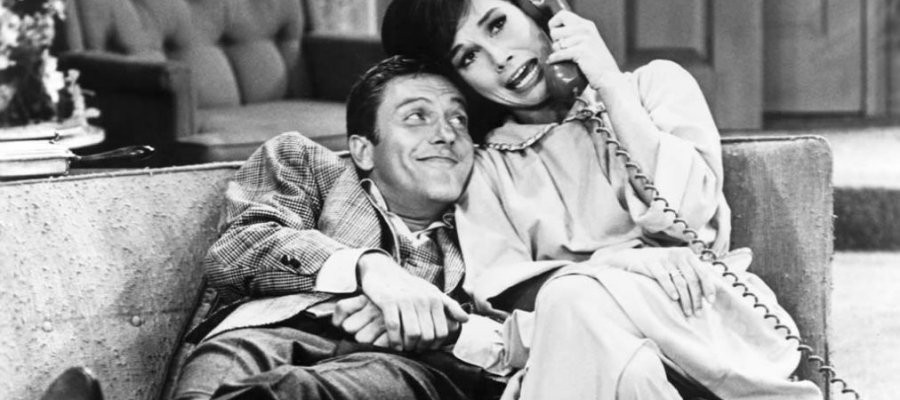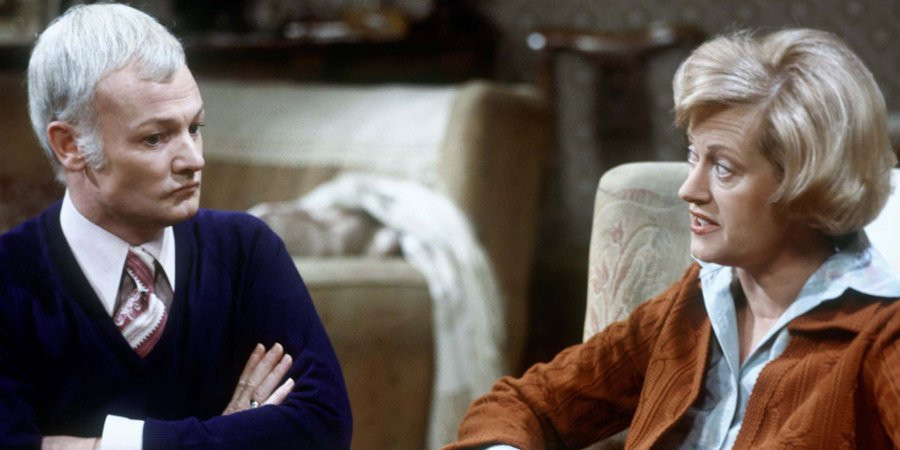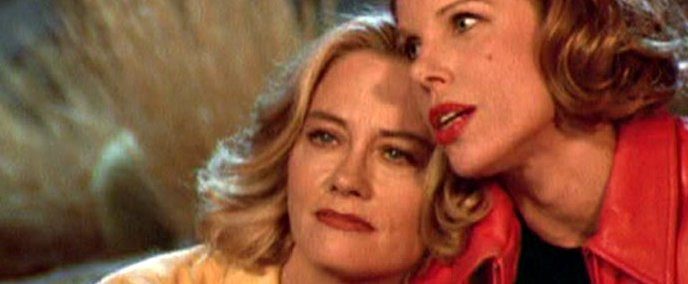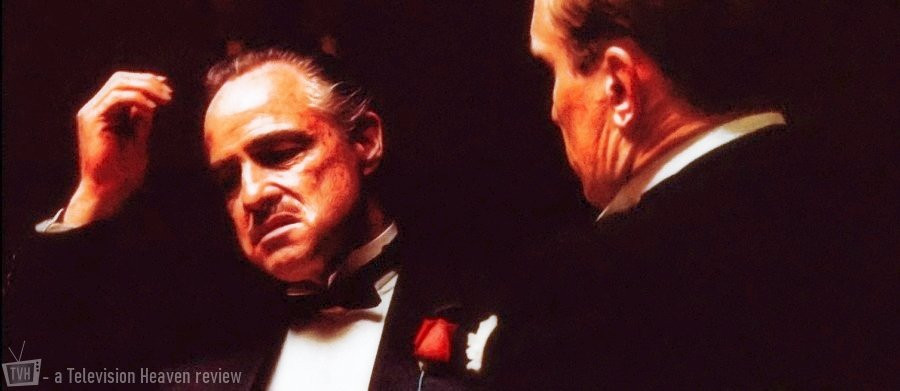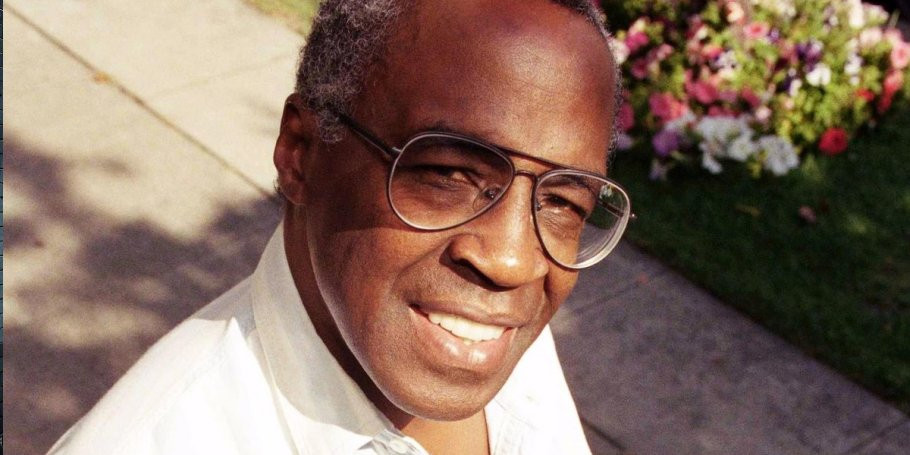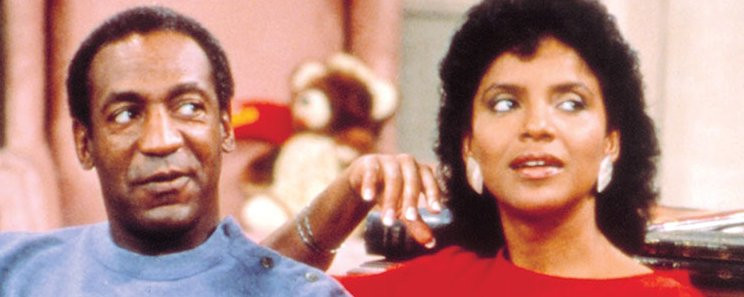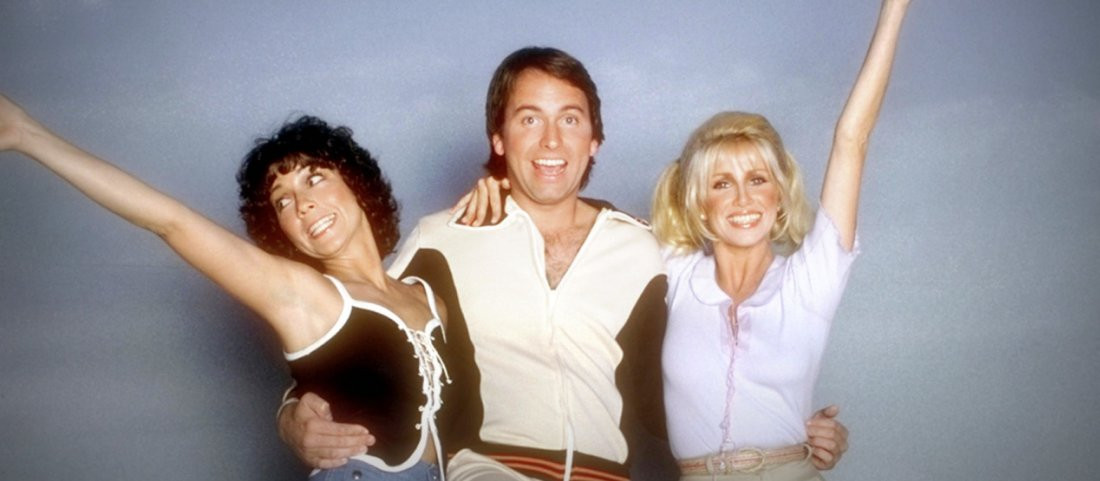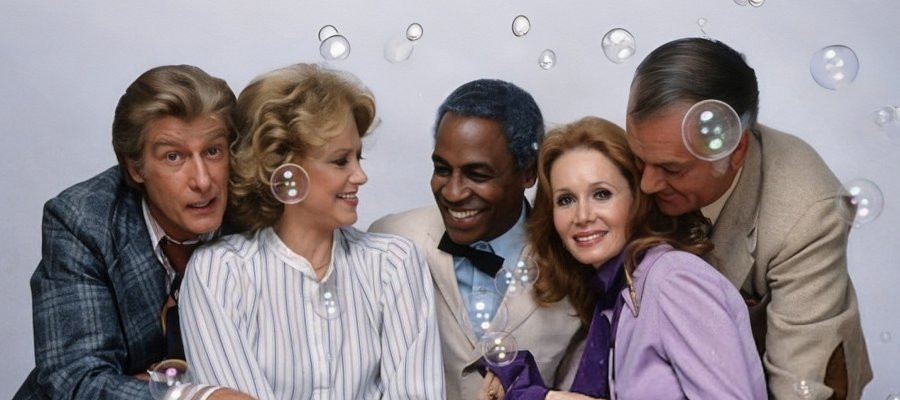
Soap
1977 - United StatesOutrageously bold, brilliantly subversive, and often laugh-out-loud funny, Soap exploded onto American television in 1977 and instantly became one of the most controversial and groundbreaking sitcoms ever aired. Created by Susan Harris, later known for The Golden Girls, Soap took the conventions of daytime melodrama and twisted them into a gleefully absurd, sharply written parody that dared to tackle subjects virtually untouched by network television at the time: infidelity, impotence, homosexuality, racism, religion, mental illness …and even… alien abduction!
At its core, Soap followed the lives of two sisters, Jessica Tate and Mary Campbell, and their wildly dysfunctional, intertwined families in the fictional town of Dunn’s River, Connecticut. Jessica Tate (played to ditzy, wide-eyed perfection by Katherine Helmond) lived in opulence with her husband Chester (Robert Mandan), a philandering, morally bankrupt stockbroker. Their household was a hive of chaos: Grandpa Tate, a senile war veteran who believed World War II was still raging; their son Billy, who was at one point kidnapped by a religious cult; and their no-nonsense African American butler, Benson, played by Robert Guillaume. Benson’s deadpan wit and cutting sarcasm—especially his trademark “You want me to get that?”—made him a breakout star. His popularity led to his own successful spin-off, Benson, which ran for seven seasons and explored more grounded political satire.
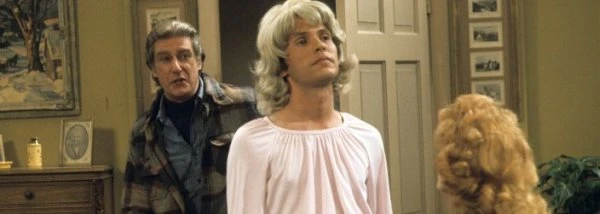
Jessica's daughters added further complications: Corrine, the flirtatious socialite, and Eunice, who was carrying on a torrid affair with a married senator. Across town, her sister Mary (Cathryn Damon) had her own share of madness. Her second husband, Burt Campbell (Richard Mulligan in a performance of manic brilliance), was initially suspected of murder, later revealed to be impotent, and eventually abducted by aliens. The Campbell home also housed Mary’s sons from a previous marriage: Danny (Ted Wass), who worked for a local mobster, and Jodie (Billy Crystal in a landmark role), who was openly gay and dealing with complex issues around his sexuality and acceptance, both within the family and society. Crystal’s portrayal of Jodie was one of the first sympathetic and fully developed gay characters on American television, and it helped pave the way for more inclusive storytelling in the years to follow.
Later, the family expanded to include Burt’s son Bob, a ventriloquist whose puppet, Chuck, delivered most of the character’s dialogue, allowing for even more surreal and darkly comic scenes. The absurdity never undercut the emotional weight of the stories, and Soap frequently made sudden shifts from farce to poignant drama, sometimes in the same scene, a feat few shows have pulled off as seamlessly since.
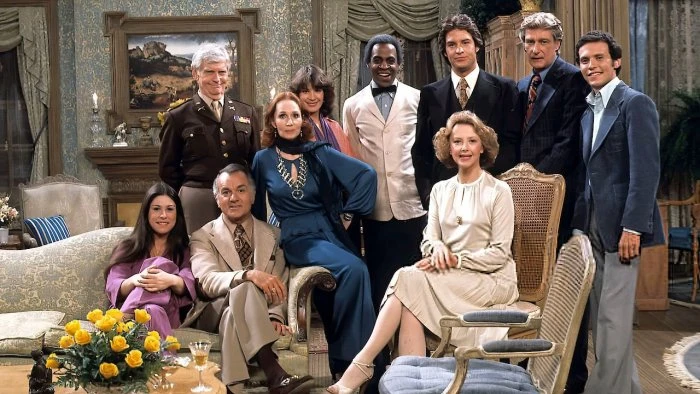
Before it even aired, Soap generated a firestorm. The pilot sparked more than 32,000 protest letters to ABC, only nine of which were supportive. Religious groups, led by the National Council of Churches and others, launched vocal campaigns condemning its content, accusing it of being immoral and unfit for primetime. Sponsors were pressured to pull out, and some local ABC affiliates refused to broadcast the show or relegated it to late-night slots. Despite the outrage, or perhaps because of it, Soap debuted to strong ratings and quickly built a loyal fanbase.
ABC defended the show as a comedic exploration of modern social issues, calling it “a landmark breakthrough in TV comedy.” Once audiences got past the controversy, many embraced the show for its wit, fearless satire, and emotional depth. It ran for four seasons (1977–1981), earning critical acclaim, high viewership, and multiple Emmy nominations. Richard Mulligan, Cathryn Damon, and Katherine Helmond all received Emmy Awards for their performances.
While Soap was technically a parody of daytime soap operas, it grew into much more; a smart, sophisticated sitcom that broke taboos without resorting to cruelty or mockery. It offered empathy even while dealing with outlandish plots, and it balanced absurdity with heart. The show's cliffhanger ending, unresolved due to its sudden cancellation, remains one of television’s most frustrating yet iconic finales, a reminder of its status as a show that was always ahead of its time.
With its fearless writing, impeccable cast, and unmatched ability to pivot between satire and sincerity, Soap set a new bar for what TV comedy could be. It remains a seminal piece of television history and a shining example of how humour can challenge, provoke, and ultimately change the medium.
Verdict: ★★★★★
Seen this show? How do you rate it?
Seen this show? How do you rate it?
Published on March 27th, 2025. Written by Laurence Marcus for Television Heaven.




